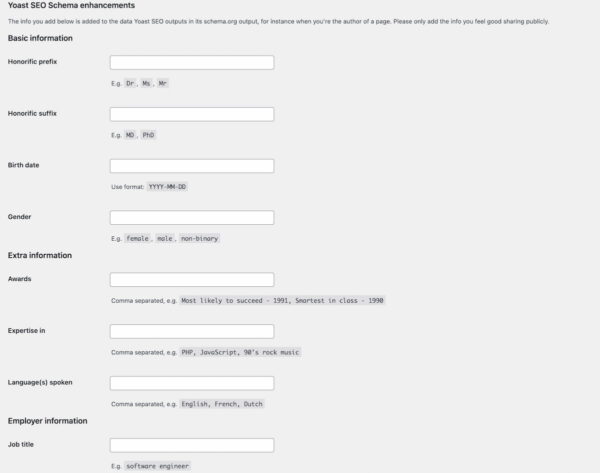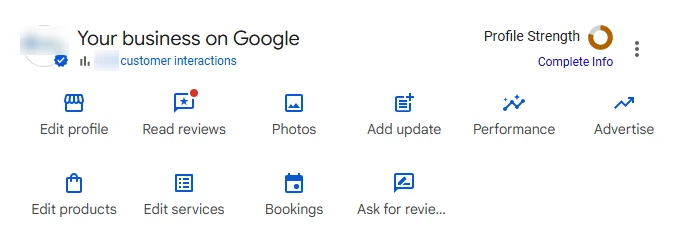Have you ever looked at a piece of content online and thinking: Hmm, I’m not sure I can trust this? Who wrote this? Why should I believe a word of what they are saying? This happens more often than you think, especially if you are looking for content that you use to make decisions that can impact your life: i.e., financial or medical information. This is where E-A-T comes into play: Expertise, Authoritativeness, and Trustworthiness — a range of signals Google uses to evaluate and judge content.
Table of contents
E-A-T is a core concept in Google’s Search Quality Raters guide
Google is constantly fighting a battle over good and bad content. In 2021, more than ever. Misinformation abounds, people gaming the system, and a frightening pandemic makes for an ever-growing need to provide trustworthy content. Google is working hard to train its systems to recognize and reward high-quality, expertly written, and factual content — this is where we see E-A-T pop up.
Expertise, authoritativeness, and trustworthiness are mentioned a lot in Google’s Search Quality Raters guidelines (pdf) and in other posts by Google. These are core signals that help Google assess and judge a piece of online content. The Quality Rater Guide is a representation of how Google want their algorithms to function. Ben Gomes, Google’s Vice President of Search, famously said in an interview with CNBC:
“You can view the rater guidelines as where we want the search algorithm to go. They don’t tell you how the algorithm is ranking results, but they fundamentally show what the algorithm should do.”
Ben Gomes
Of course, E-A-T is not used in the same for every search query out there. E-A-T is especially important for web content that describes things that can impact the lives of visitors. These are so-called YMYL sites.
What are YMYL sites?
YMYL stands for Your Money or Your Life. These concern pages that feature content that, quite literally, can cost you your life. Pages like this can have an impact on the visitors’ well-being, health, financial situation or safety. This is very broad and touches loads of sites. Think of it this way, even accepting credit cards for an online purchase makes your site a YMYL one.
Here’s some of the examples Google gives as heavy on the YMYL:
- News and current events,
- Civics, government and law,
- Finance,
- Shopping,
- Health and safety,
- Groups of people,
- And a big bucket of other, that consists of many other things and decisions that can influence a person’s life.
The reason that Google identifies these YMYL sites is that these need extra scrutiny. As the content on these types of sites can impact lives, it needs to be assessed extra carefully. In the age of fake news and misinformation it is increasingly hard to find, critically judge and trust online content. Especially now, during the COVID-19 pandemic, Google has fought very hard to keep misinformation about the virus to appear in the search results.
To do this, Google uses a variety of signals to determine how trustworthy a site is. It also has systems in place to judge the expertise and authoritativeness of so-called experts. Together, these signals help Google get a better sense of which sites to rank and which sites to sweep under the rug.
What does E-A-T mean?
As said before, E-A-T stands for Expertise, Authoritativeness and Trustworthiness. These are all interconnected and are used to evaluate how well a site performs. Sites with good E-A-T can appear in every sector, across every industry — it’s not limited to YMYL sites.
Expertise
How much of an expert is the one who wrote the article you are reading? Can you find out anything about them? Are they renowned experts, won any awards? Studied at Harvard? Is the article on mortgages written by an experienced financial advisor specialized in financing housing property — or did a content marketeer write it for the sake of getting links? For a lot of topics, this matters.
For YMYL content, expertise matters. People reading it need to know that they can trust the expertise of the person who wrote it. Would you take medical advice from a mom blogger? I might if she’d turn out to be an expert because of their life experience.
For non-YMYL content, Google also uses the term everyday expertise to signal that authors are considered experts in their own field if they have life experience. The expertise of the writer is judged on the level of the content itself.
Authoritativeness
While looking to determine authoritativeness, Google takes the author, the content and the website itself into account. How much of an authority are you and your site really? It’s all about who you are, who you represent and what your reputation is. Is your site an authority on the topic? Do well-known experts link to or mention your content? Has it been used in research? Have you any reviews by fellow experts? Did Wikipedia link to or mention your content? Do you have your own Wikipedia page?
Trustworthiness
For trustworthiness, Google also takes the author, the content and the website itself into account. Google uses a lot of signals to determine your (site’s) trustworthiness. This could be as simple as technical trustworthiness — does it have an SSL connection? — to more abstract signals like online discussions about your business or the way you responds to reviews online. Why would people risk their life on your site? Is your business trustworthy?
Is E-A-T a ranking factor?
There’s been a lot of discussions if E-A-T is a ranking factor or not, but it’s really not. It’s not something you can directly point your finger to as to, you have to do this to get that.

Working on your E-A-T is good anyway because you are working to improve your expertise, authority, and trustworthiness in the eyes of your customers. And that’s what every business should be doing, right? But it shouldn’t take away from your technical SEO work.
Go over Google’s Quality Raters Guidelines to see what they look for in the search results. Remember that it isn’t a description of how the algorithm works, so you don’t need to obsess over it. ‘Simply’ make the best possible site out there. Make sure your content is top-notch and supported by experts, if needed.
How to improve E-A-T
As you can imagine, E-A-T is an abstract topic and there are no guidebooks on what you should do to increase the numbers. It’s not like it’s a separate piece of the algorithm with different dials you can turn. It’s simply a range of signals that helps Google get a grip on you, your content and your business.
Not every site needs to worry about E-A-T, but if you have a YMYL site, there are many things you can do to improve it. But, the results of those improvements are not set in stone. It’s also a lot more than simply improving your about us page and author pages. If you truly want to be seen as an expert, you need to really put in the hours. Slowly, but steadily you’ll get there.
Some of the things you can do to improve E-A-T — depending on what type of content you have, of course:
- Get mentioned on Wikipedia, or get your own listing (easy, right?)
- Get into Google’s knowledge graph
- More mentions from trusted experts
- Get links from high-value sites
- Appear in valued newspapers or on other well-known sites
- Arrange high-quality reviews
- Let topic experts review your content
- Enhance the quality of your content
- Don’t make your content too sales-oriented
- Do unique content like research papers
- Improve your business details/about us pages
- Improve your bio
- Fix your CTAs and UX (no dark patterns!)
- Keep your ads in check
- Et cetera, et cetera.
In short, practice holistic SEO and build a better, more trustworthy, and well-respected business! To start improving the quality of your content, our SEO expert Jono Alderson wrote an excellent guide on how to think about high-quality content — including a nice checklist with questions you can ask yourself.
Connecting the dots with Schema.org structured data
A part of improving your E-A-T is describing your site in detail to search engines, your authors, and all the entities on it. Schema.org structured data is a great help in that and it’s an essential part of SEO — whether you are working on your E-A-T or not. By doing so, you can solidify what Google knows about you in a way that makes sense to a search engine.
Yoast SEO comes with a fully-featured structured data implementation that automatically does a lot of the work for you. For instance, Yoast SEO describes the author of articles, and information about them, making it easier for Google to evaluate the E-A-T of them. Yoast SEO Premium goes even further as this lets you set additional properties per user. You can add the awards you won, the titles you have, or what expertise you have simply by filling in some fields.

On Schema.org, you’ll find options to declare that a webpage was reviewedBy a person (on a date). At the moment, this is not something we support in Yoast, but you could use our Schema API to write the code for this. Schema.org also has some good options for defining things like alumniOf — earlier in this article, we’ve mentioned Harvard attendance as an example of authority, and this sort of thing can be explicitly described in the structured data.
In the near future, we’ll see many more things come out of Schema.org to help you support your E-A-T.
E-A-T will play role in separating fact from fiction
In this article, you got a little insight in a term you might have heard before in regards to SEO: E-A-T. Expertise, trustworthiness and authoritativeness are key terms in identifying the quality of you, your content and your business. It’s an interesting concept that gives you insight into what’s important for Google to understand quality and expertise.
Although it’s easy to forget that you’re not doing this for Google — your customer deserves that high-quality content and services. Improve those!
The post What is E-A-T (Expertise, Authoritativeness, and Trustworthiness)? appeared first on Yoast.



Recent Comments